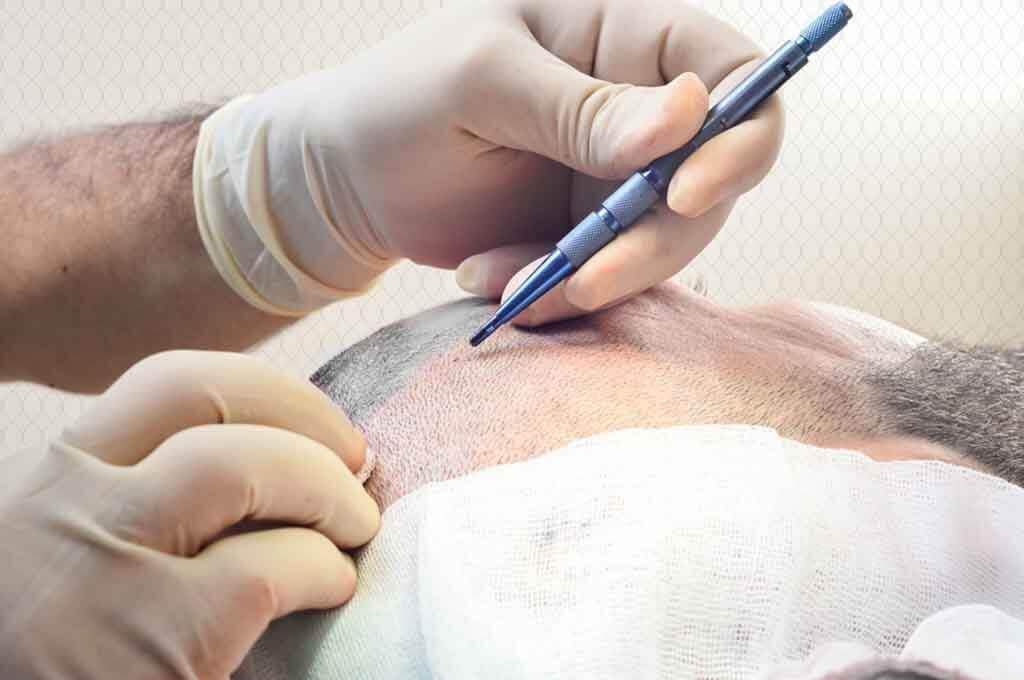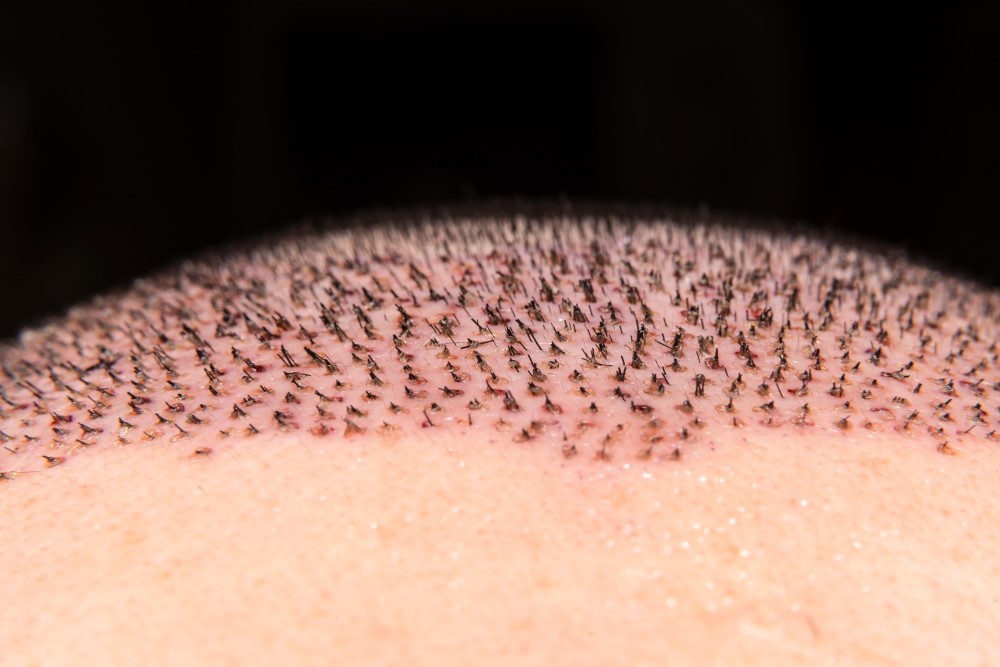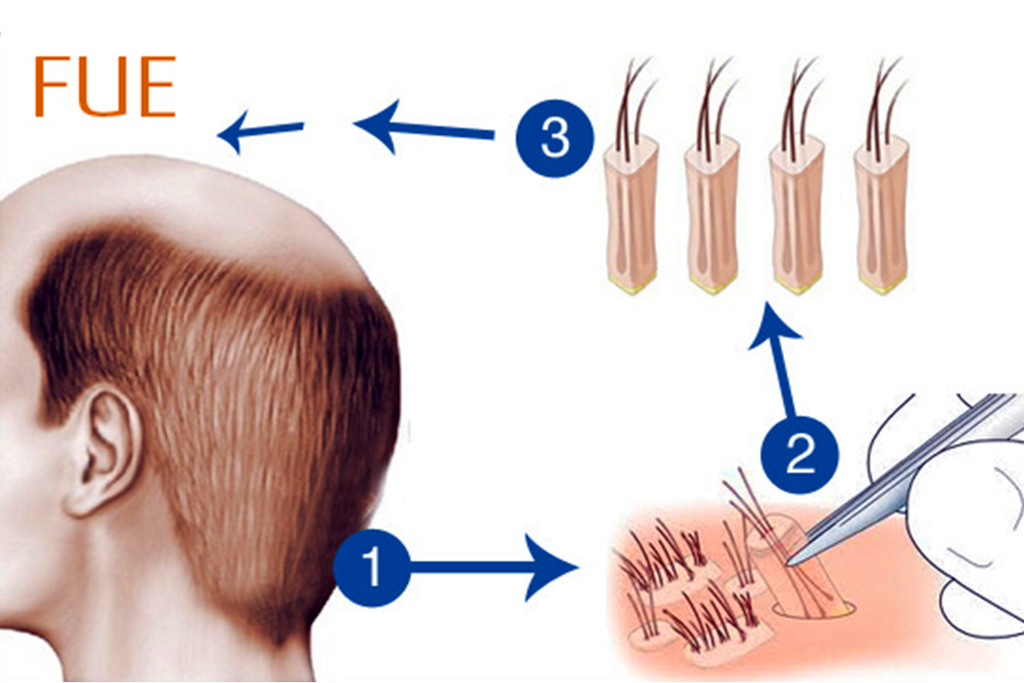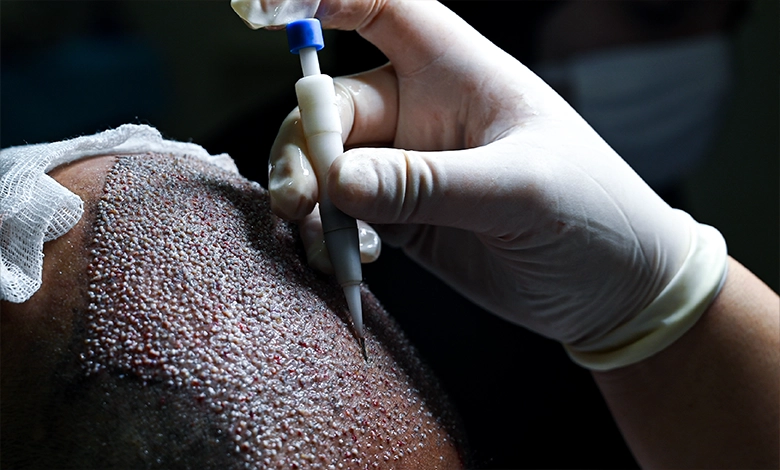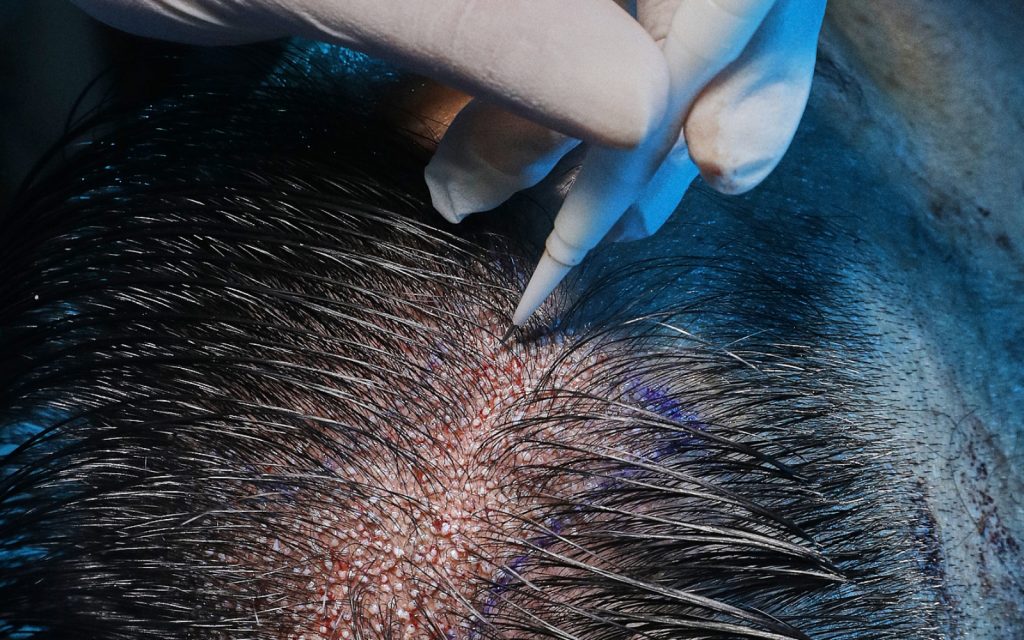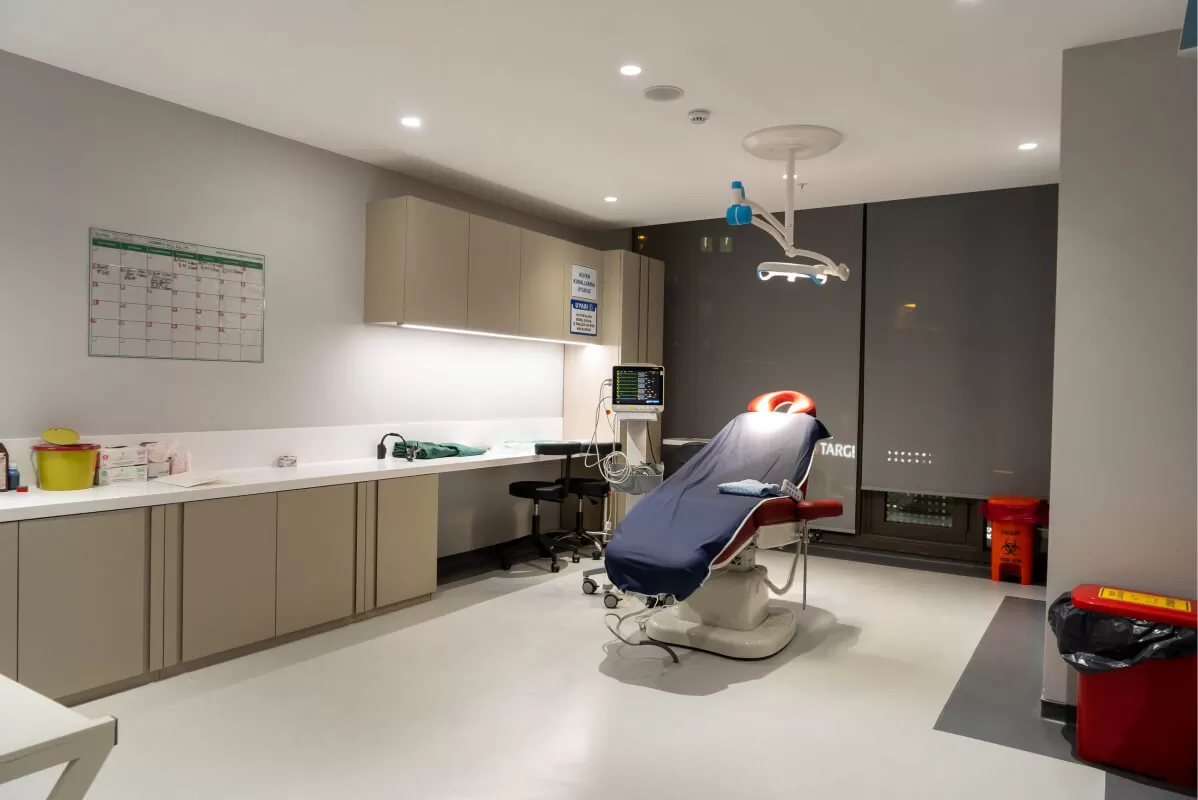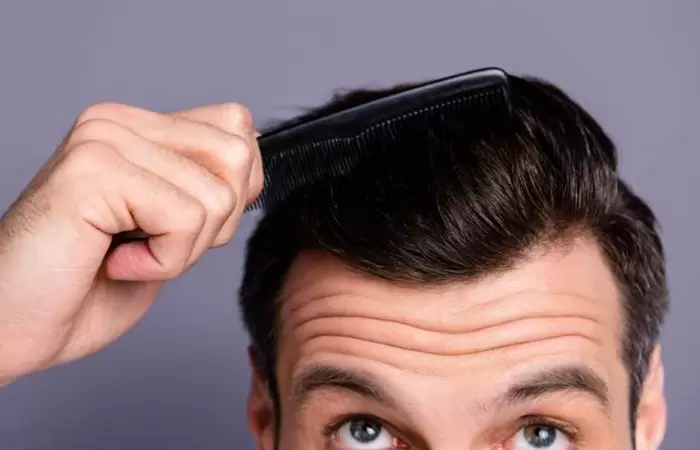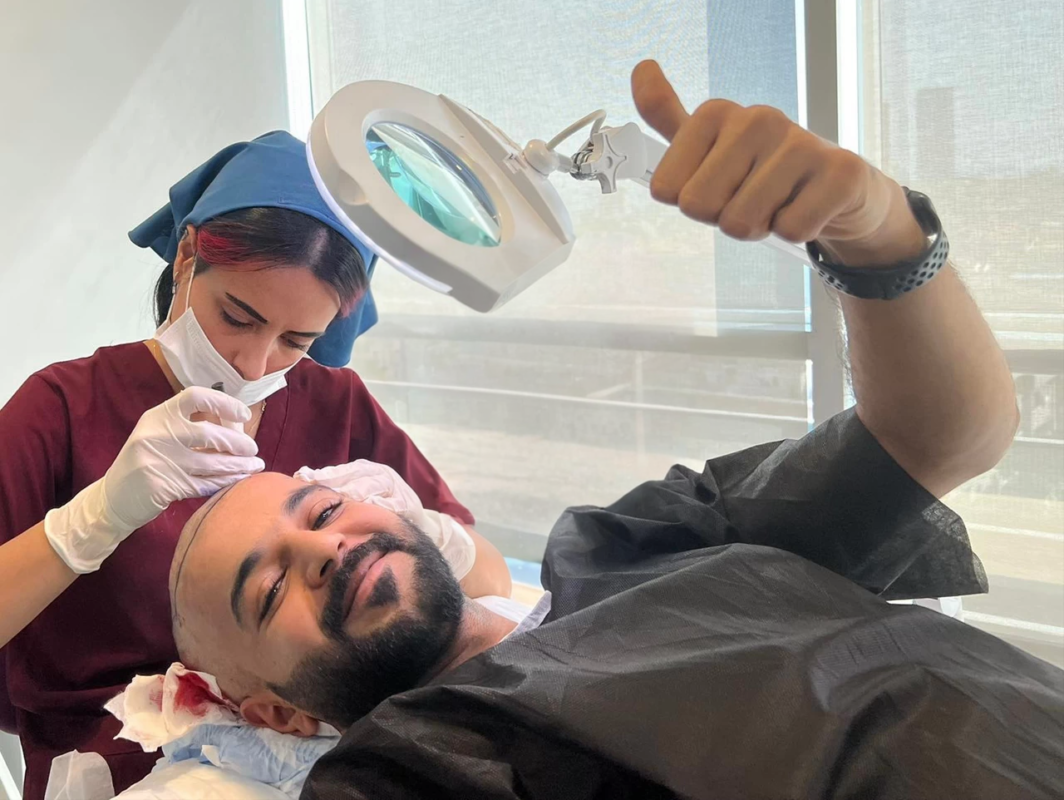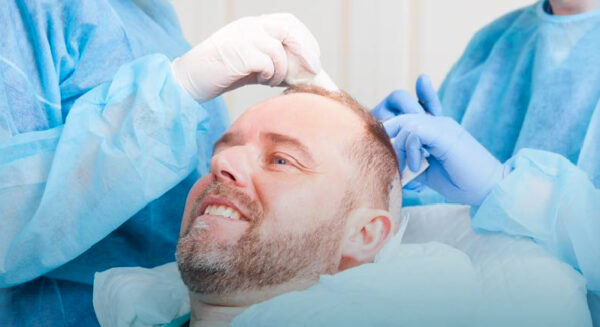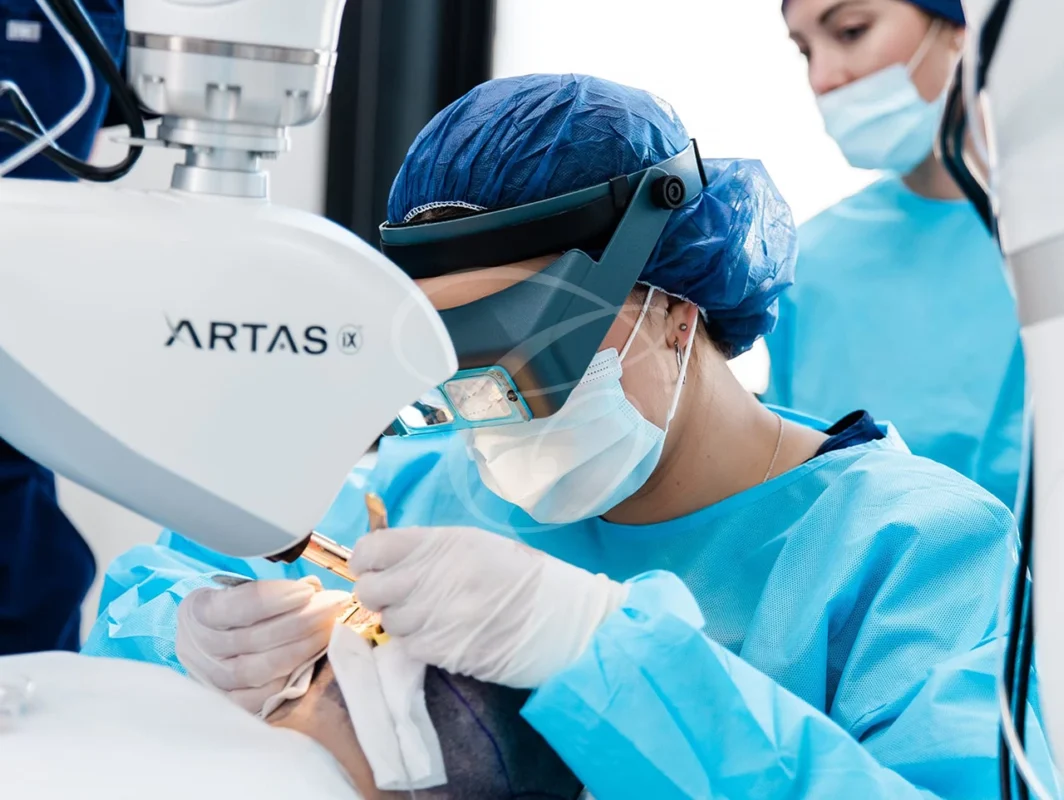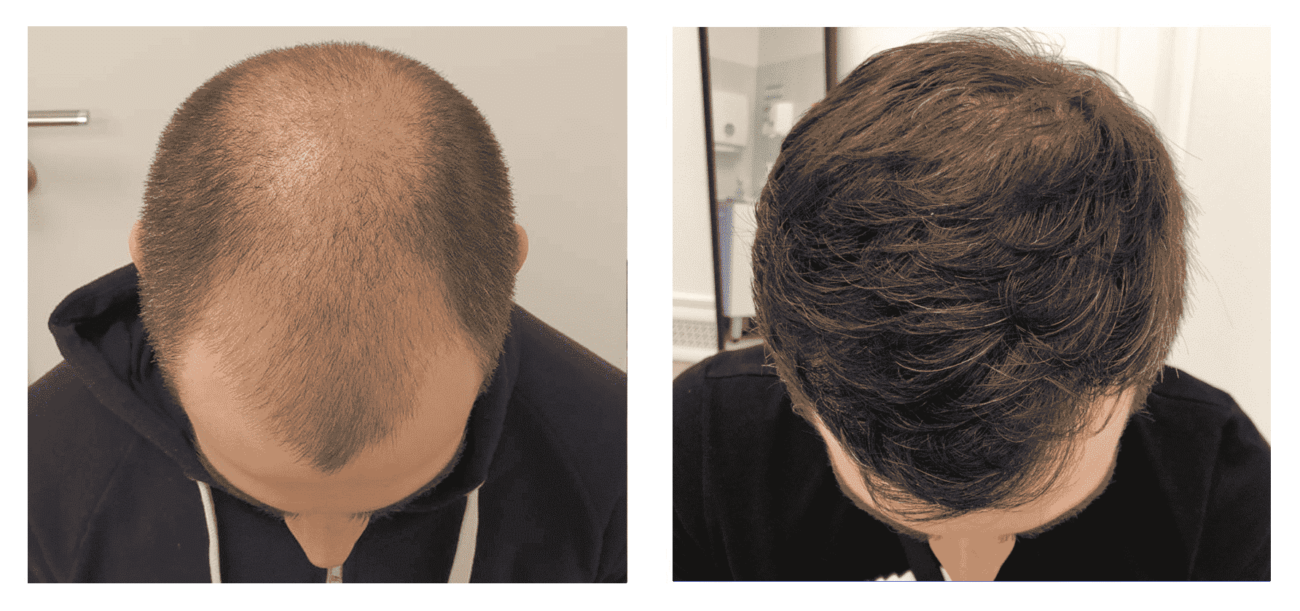After Hair Transplantation
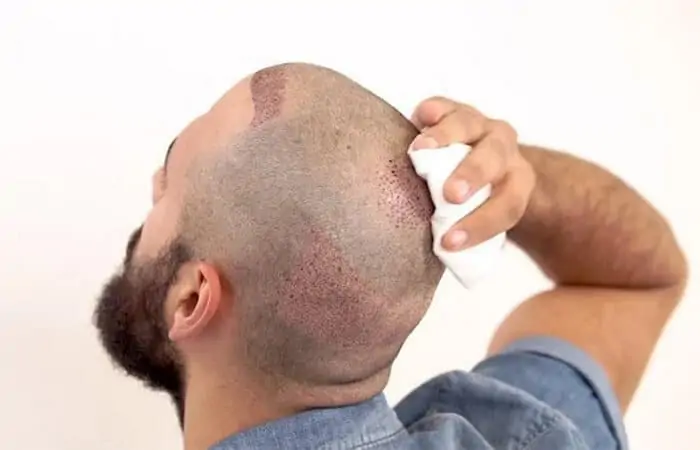
The post-hair transplant period is a crucial stage in achieving the desired results from this cosmetic procedure. While hair transplantation is a major step towards restoring the natural appearance of hair, true success depends largely on the care and attention provided after the procedure. This period requires adherence to a set of instructions and advice recommended by doctors to ensure that the scalp heals properly and the transplanted hair grows in a healthy and natural way. In this article, we will discuss in detail what to do after a hair transplant to ensure the best possible results, and how to deal with common challenges that may arise during this period.
What is the best sleeping position after hair transplantation?
The best sleeping position after a hair transplant is to sleep in a semi-upright position, with your head elevated at a 45-degree angle. It is preferable to use several pillows to support your head and upper body or use a reclining chair if possible. This position helps reduce swelling and pressure on the transplanted areas, which protects the newly transplanted follicles and prevents them from rubbing or being damaged during sleep. Sleeping on your sides or stomach should be avoided, as this can cause the transplanted areas to come into contact with the mattress or pillow, which may negatively affect the results of the procedure.
You will be able to return to normal sleep within 10 days after the hair transplant. For about two weeks after the procedure, you may feel some discomfort, the above suggestions on how to sleep will do the trick, you may feel slight pain in the area where the transplant was done, itching, redness, bruising swelling, all of this is normal and nothing to worry about and these symptoms will subside over time.
The importance of proper nutrition in promoting hair growth after hair transplantation:
Proper nutrition plays a key role in promoting the healing process after a hair transplant and supporting new hair growth. Eating foods rich in proteins, vitamins, and minerals such as iron and zinc helps strengthen hair follicles and accelerate the growth process. Proteins, found in meat, fish, and legumes, are the building blocks of hair, while vitamins such as vitamins A, E, and C contribute to improving scalp health and stimulating collagen production.
Also, minerals such as zinc and iron enhance blood flow to the scalp, which nourishes the follicles and stimulates hair growth. You should also drink plenty of water to keep your body hydrated and promote the healing process. Following a balanced diet for at least a week after the procedure will help you recover from the procedure quickly, and it will also help prevent infection or any complications during the healing phase.
Do you need a vacation or personal assistance after hair transplantation?
Yes, it is advisable to take a short break from work or school after a hair transplant. Although the procedure itself is relatively simple, the body needs time to recover properly. The rest period allows the patient to avoid activities that may put pressure on or stress on the scalp, which helps protect the transplanted follicles and ensure the success of the procedure.
It is usually recommended to take 3 to 7 days off after the procedure, depending on the nature of the work and the complexity of the transplant. For work that requires strenuous physical activity or exposure to the sun, a longer period of rest may be required. Additionally, it may be helpful to have a personal assistant in the first few days after surgery, especially if assistance is needed with simple daily tasks such as cooking or moving around. This can help reduce stress and tension, promoting a quick and safe recovery.
Cleaning the transplanted area is essential:
Keeping the transplanted area clean after a hair transplant is essential to ensure the success of the procedure and proper recovery. The first few days after surgery are very sensitive, as the transplanted follicles are susceptible to contamination or infection if not given the proper care. The scalp should be gently cleaned using a medicated shampoo recommended by the doctor while avoiding rubbing the area or using harsh chemical products. Keeping the transplanted area clean helps prevent scalp infections and protects the new follicles, which contributes to enhancing hair growth and achieving the desired results from the procedure.
The importance of avoiding itching and touching after hair transplantation to protect the results:
After the hair transplant procedure, it is essential to avoid itching or touching the transplanted area to ensure the success of the procedure and protect the newly transplanted follicles. Itching is a natural part of the healing process, as it can result from slight swelling or dryness of the scalp, but it can lead to the follicles moving or being displaced from their places if not handled with care. It is recommended not to touch the scalp with your hands or nails and avoid rubbing it in any way. It is important to avoid wearing hats or any head covering in the first days after the procedure as this may put pressure on the transplanted follicles.
Finally:
The post-hair transplant period is a very important period. Adhering to the advice and instructions recommended by doctors not only ensures the success of the procedure, but also helps promote the health of the transplanted hair and its natural growth. From taking care of scalp hygiene, avoiding itching and touching, to following a healthy diet and avoiding strenuous activities, all of these factors contribute to achieving the best results. With patience and attention to detail, the post-hair transplant period can be a successful step towards regaining self-confidence and enjoying healthy, beautiful hair.
Please enter your data correctly
We will contact you as soon as possible.


